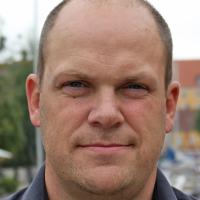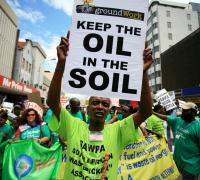Making green energy work for everyone
Green energy is gaining momentum and delivering environmentally friendly electricity to developing countries, but there are growing concerns that local communities and economies aren’t benefitting. How can we ensure that they do?
This is the key question in a new collaborative research project which examines how large-scale renewable energy projects impact local development. The project is funded by Denmark’s Ministry of Foreign Affairs and led by the UNEP-DTU partnership.
DIIS is a participating partner, along with University of Cape Town, Stellenbosch University and the Wind Industry Associations of Denmark and South Africa. The project will focus on examining an innovative scheme in South Africa, where the price of green energy can now compete with coal power plants.
"The prices of renewable energy have fallen steadily in South Africa, but we are still not sure what the impact of the huge investments is in a development perspective," says senior researcher at UNEP DTU Partnership Ivan Nygaard on the background of the project.
Green projects in trouble
Mikkel Funder, senior researcher at DIIS, is one of the researchers involved in the project. He points to the importance of examining how large wind- and solar farms can be financed and developed so that both people and the climate benefit.
"As renewable energy schemes become widespread, we see that green energy projects become immersed in serious conflicts or even end up creating negative local development because the projects fail to benefit the local population and economy."
The research project, called “Tendering Sustainable Energy Transitions”, will therefore examine how the private sector collaborates with local people and municipalities in the production of wind energy in South Africa. The project thereby aims to increase knowledge on how a transition to sustainable energy in developing countries can be undertaken in ways that benefit local citizens and industries.
Broadening the benefits
In recent years, large solar and wind projects have gathered pace on the African continent. But the proliferation of renewable energy has been criticized for not adequately benefiting local populations on a continent where millions live without access to electricity.
In South Africa, the so-called Renewable Energy Independent Power Producers Procurement Program (REIPPPP) is trying a new approach. Under the programme, production of renewable energy is outsourced to private suppliers who not only compete on price but also on how they can contribute to local development. This includes industrial development and job creation, but also socio-economic development in e.g. education, health and infrastructure.
Up to now, over 6,000 MW of renewable energy has been purchased across 102 projects under this programme, with a total investment of some 15 billion USD dollars. That’s already now more than the total capacity of 5,000 MW installed throughout Denmark.
Through REIPPPP, the price of renewable energy has dropped to levels close to the price of coal-produced power. The program's contribution to limiting the use of coal in energy supplies is well documented, but the development results of new interactions between investors, industries, society and government are still poorly understood. An analysis of these conditions will be helpful not only for South Africa, but also for other countries moving towards sustainable energy, both in sub-Saharan Africa and globally.
Governing green energy
According to Mikkel Funder, one of the issues that needs to be understood better is the governance aspect of green energy projects, i.e. how decisions are made, and how collaboration between different stakeholders plays out in reality. Even with the best of intentions, that is a process which often turns out differently than expected.
"It is therefore important to learn from the South African program experience, and find out which modes of collaboration work best. Research-wise, it is important to understand how new institutions and decision-making processes are developing around renewable energies as they spread" he says.
Public institutions, international technology providers, industry experts, universities, municipalities, NGOs and community groups will be involved in research, and Ivan Nygaard believes that the outcome will not only be able to expand existing Danish expertise in the field, but also help create better procurement schemes for renewable energy.
"The results of our research will be valuable insights that can be used both for academic purposes and by policy makers in Africa and in the rest of the world. Especially when it comes to designing framework conditions for the propagation of renewable energy that can create jobs and local industrial development in Africa.”
DIIS Experts



